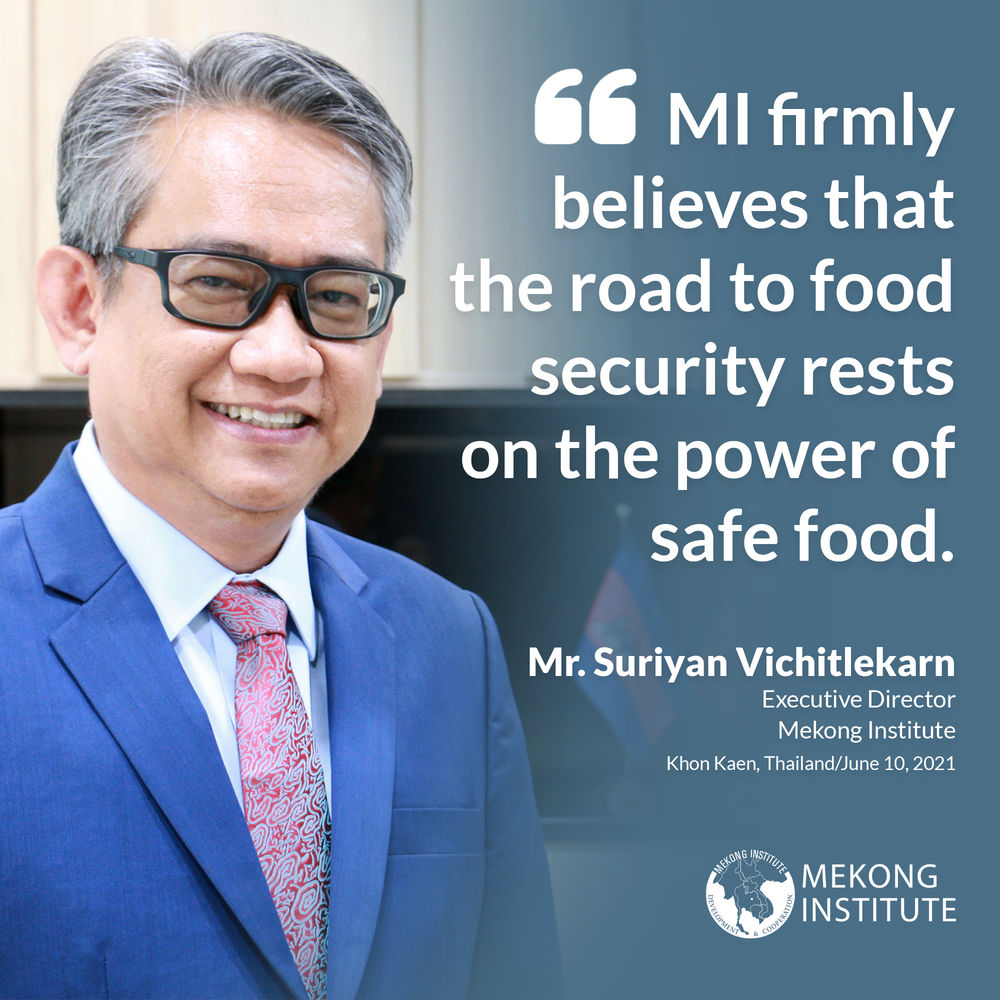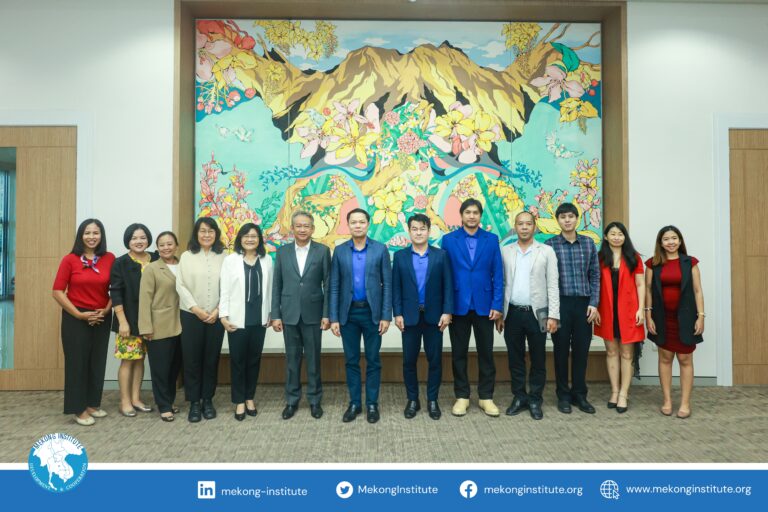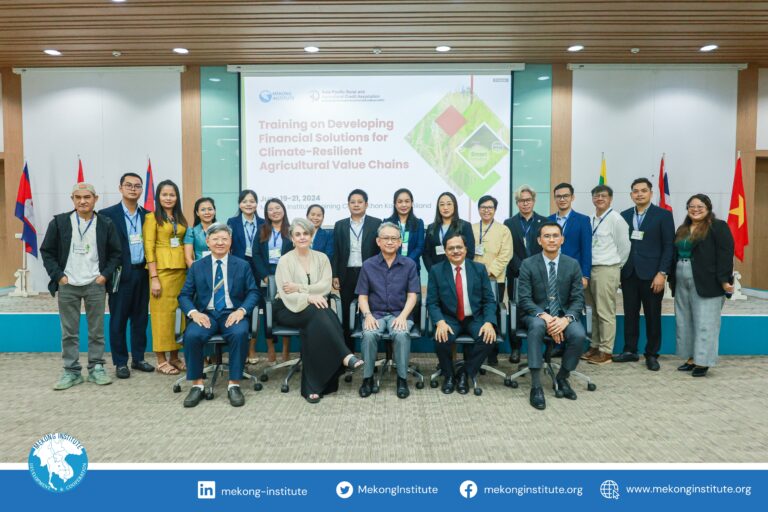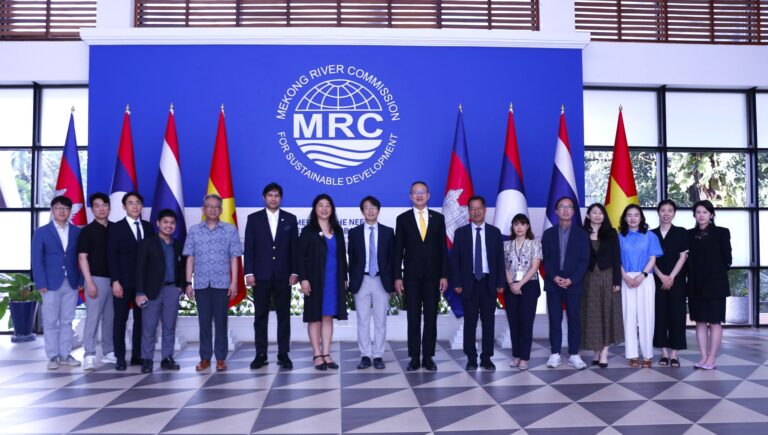Mr. Suriyan Vichitlekarn, Mekong Institute (MI) Executive Director, called for increased joint efforts in strengthening agricultural food safety standards and systems to boost market competitiveness and make more sustainable, inclusive and resilient cross-border trade activities in the Greater Mekong Subregion (GMS) at an Asian Development Bank (ADB) online meeting on June 9, 2021.
Hosted by Landell Mills, the event drew together over 30 experts, including GMS Working Group on Agriculture focal points and development leaders to build consensus on priority areas that will support the Strategy for Promoting Safe and Environment-Friendly Agro-Based Value Chains in the GMS and Siem Reap Action Plan, which was endorsed by the GMS Agriculture Ministers in September 2017.
With the rise of innovative food productions, increasing food demands, and changing food consumption patterns, Mr. Suriyan said that “cohesive capacity building and advocacy initiatives are vital in instilling a food safety culture so all stakeholders in the food supply and value chains can meet market demands and cement consumer confidence, as well as contribute to public health and food security.”
He also provided inputs to climate smart agriculture (CSA) financing, emphasizing the importance of incorporating CSA into viable business models to support small- and medium-sized enterprises’ (SMEs) access to finance and ASEAN crop insurance schemes for the enhanced resiliency and recovery of SMEs in the face of climate-related disasters.
Findings from the activity will feed into the ADB-supported GMS Sustainable Agriculture and Food Security Program. The program, which is overseen by the GMS Workshop Group on Agriculture in collaboration with government ministries across the GMS, was designed to pool investments and enhance GMS capacities to meet Sustainable Development Goals in relation to agriculture and food security. From 2020 to 2025, the program is expected to contribute to stronger climate-friendly, inclusive, and gender-responsive agri-food value chains and agribusinesses; increased adoption of harmonized crop and livestock safety and quality systems; and enhanced climate-adaptive agriculture in the context of the water-energy-food security nexus.
MI, who was tapped to provide its technical recommendations, is considered one of the longest-running and established development institutions in the GMS. With its wide-reaching networks across the subregion, MI’s contributions in agricultural development and commercialization has contributed to sustainable food systems, stronger value chain development and postharvest management, as well as broader food safety and market access.
These gains are particularly manifested in MI’s PROSAFE project. Supported by the New Zealand Aid Program, MI empowered over 600 food safety champions who are delivering demonstrative change through stronger food safety policies, practices, and campaigns in Cambodia, Lao PDR, Myanmar, and Vietnam. It has also been fortifying public-private linkages so they can collaboratively establish integrated mechanisms to sustain food safety investments in the region.
To know more about PROSAFE, visit PROSAFE: PROMOTING SAFE FOOD FOR EVERYONE







